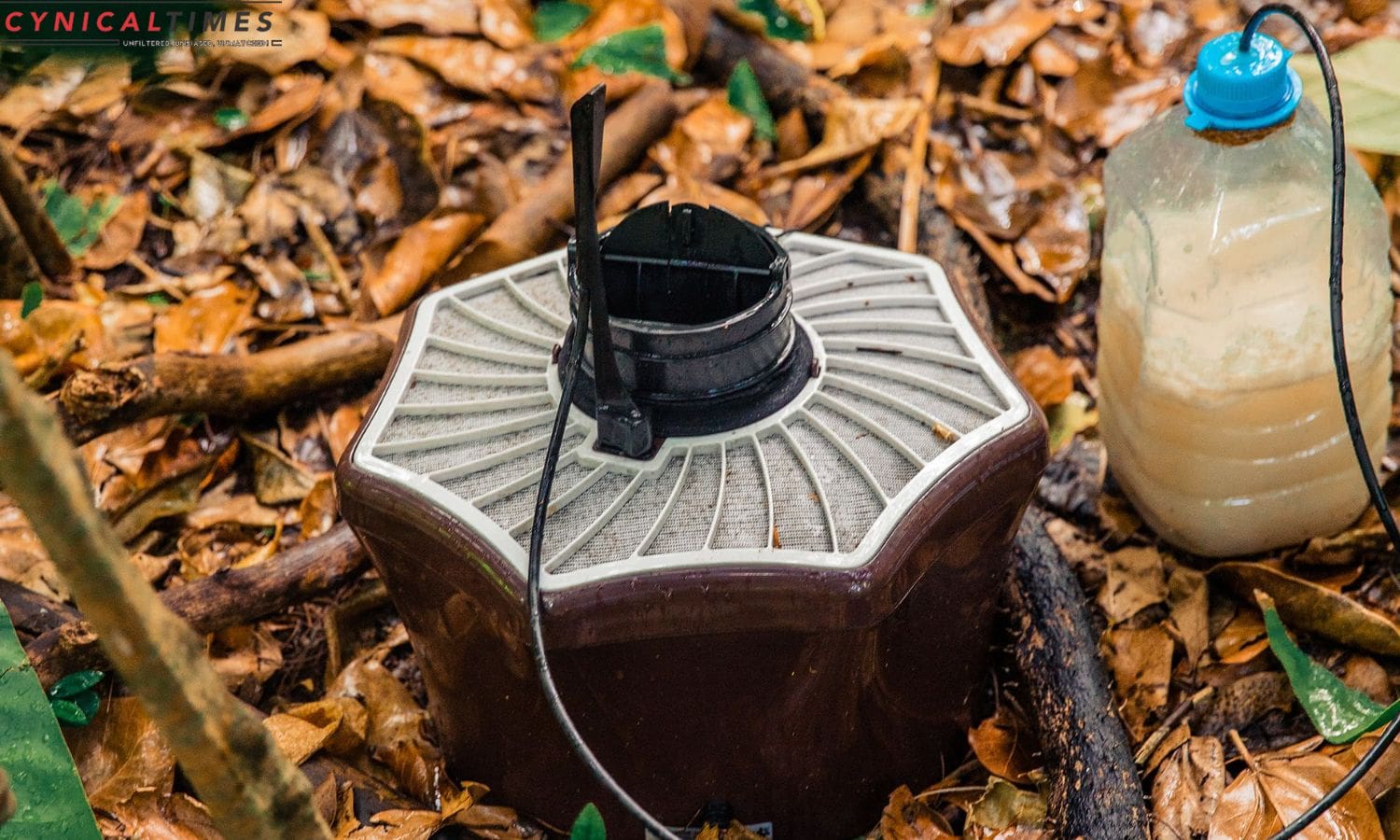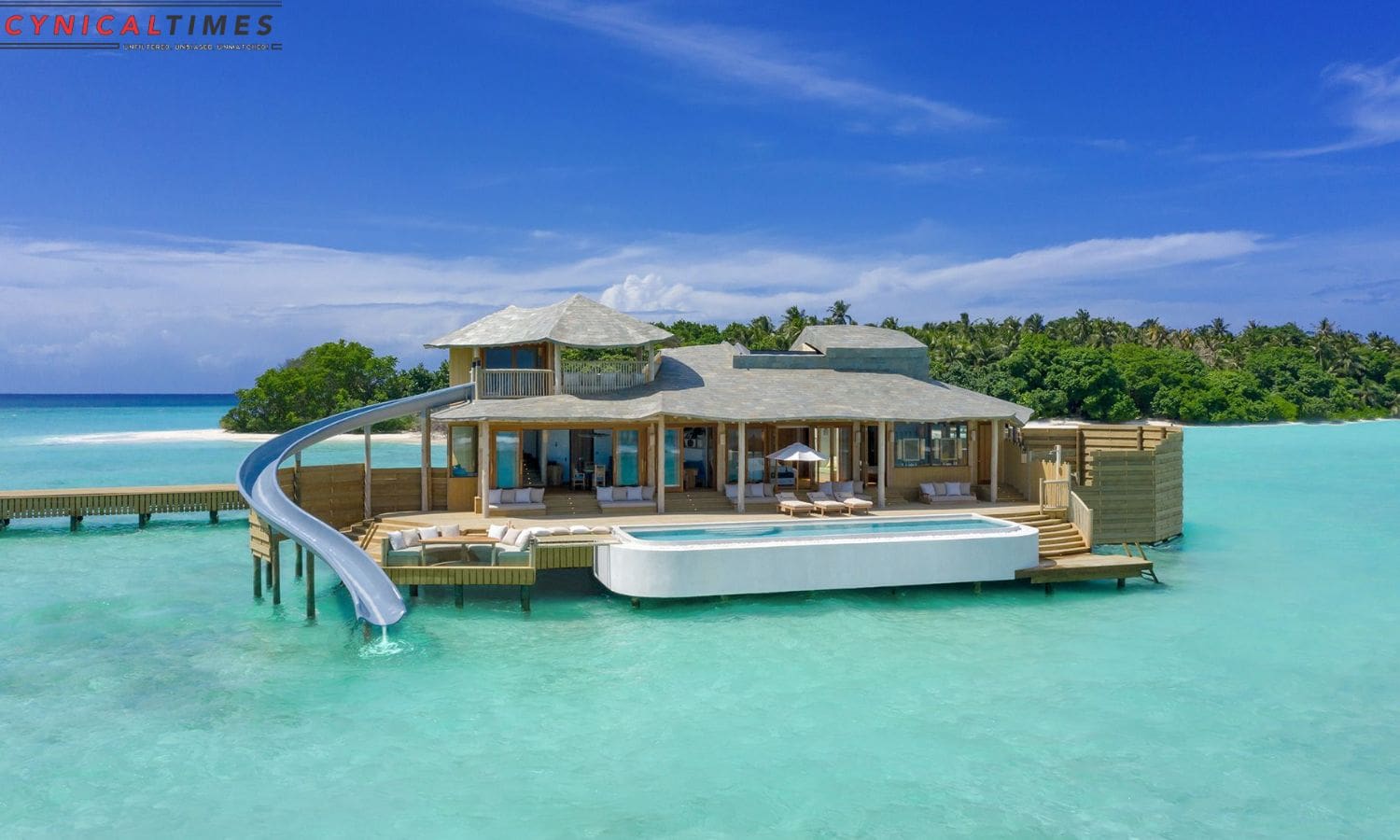Soneva Fushi Mosquito Battle: Soneva Fushi, situated on the private Kunfunadhoo Island in the Maldives, faced a significant challenge with mosquitoes, especially during the monsoon season. Seeking an environmentally friendly solution, the resort partnered with Biogents, a German company specializing in mosquito traps. Traditional methods, such as hot fogging and mist blowing, proved imprecise and disruptive to guests.
In 2019, Soneva introduced the Biogents traps, including the BG-GAT and BG-Mosquitaire CO2, strategically placed across the island. The BG-GAT targets tiger mosquitoes seeking egg-laying sites, while the BG-Mosquitaire CO2 attracts mosquitoes searching for blood by simulating human breath and scent.
The resort not only relied on traps but also educated staff about mosquito ecology. Regular property inspections were implemented to identify and eliminate potential breeding grounds, such as stagnant water in tarps or fallen coconut shells. The holistic approach to pest control demonstrated Soneva’s commitment to sustainability and environmental consciousness.
The results were striking, with a recorded decrease of over 98% in the mosquito population within the first year. This success was not only quantifiable but also noticed by repeat guests who appreciated the positive change.
Importantly, the Biogents traps proved effective in the long term, without concerns about mosquitoes developing resistance. The discontinuation of chemical methods not only led to a resurgence of native insects but also contributed to increased biodiversity on the island. Flowers, fruits, and other produce flourished, attracting more birds and even fireflies at night.


Also Read: The Duke of Edinburgh: A Lasting Beacon of Tradition Amid Silicon Valley’s Flux
Soneva’s dedication to sustainable practices, rooted in its founders’ vision of environmental responsibility since 1995, was further exemplified by this eco-friendly approach to mosquito control. The resort aimed not only to be mosquito-free itself but also generously shared its knowledge and traps with the Maldivian Parliament and other resorts, fostering a broader initiative for environmentally conscious pest control in the region.
Looking ahead, Soneva Fushi aims to be the first mosquito-free island in the Maldives, and its success has inspired other resorts to follow suit. The resort’s efforts extend beyond its own boundaries, demonstrating a commitment to creating a more sustainable and eco-friendly environment for the entire Maldives.
Our Reader’s Queries
Which Maldives island has no mosquitoes?
Soneva Fushi, a resort nestled on the secluded Kunfunadhoo Island in the Maldives, has been tirelessly combating pesky mosquitoes for years. Their efforts have paid off with a remarkable decrease in the mosquito population, which has also revitalized the island’s lush flora and fauna. Thanks to their effective solution, Soneva Fushi has become a haven for guests seeking a mosquito-free paradise.
Are mosquitos a problem in Maldives?
Although mosquitoes are present in the Maldives, you need not worry about them during your stay at the resorts. The islands are regularly fogged and misted each week, and sometimes even daily, to keep these pesky insects at bay. Additionally, every room is equipped with mosquito kits, which include insect repellent candles, just in case. So, sit back, relax, and enjoy your vacation without any worries about mosquito bites.
Do you need bug spray in the Maldives?
When visiting Maldives, it’s important to protect yourself from mosquito-borne illnesses like dengue fever and zika. To avoid bites, wear clothing that covers your limbs and use a trustworthy insect repellent. If possible, sleep under nets for added protection. Stay safe and enjoy your trip!
What island has no mosquitoes?
Iceland is a rare location on Earth that is free from mosquitoes, and the reason behind this phenomenon remains a mystery. Despite not being as cold as Antarctica, where both mosquitoes and humans would struggle to survive, Iceland remains a habitable place without the pesky insects. The cause of this unique characteristic is yet to be determined, but it is undoubtedly a relief for those who are prone to mosquito bites.

